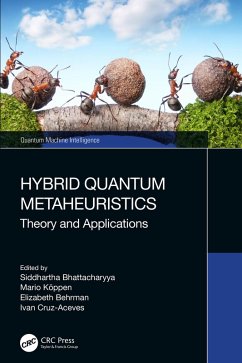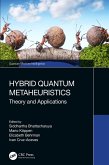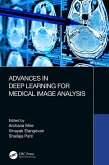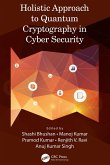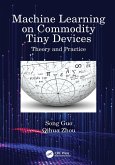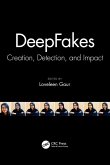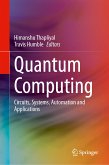Hybrid Quantum Metaheuristics (eBook, PDF)
Theory and Applications
Redaktion: Bhattacharyya, Siddhartha; Cruz-Aceves, Ivan; Behrman, Elizabeth; Köppen, Mario
47,95 €
47,95 €
inkl. MwSt.
Sofort per Download lieferbar

24 °P sammeln
47,95 €
Als Download kaufen

47,95 €
inkl. MwSt.
Sofort per Download lieferbar

24 °P sammeln
Jetzt verschenken
Alle Infos zum eBook verschenken
47,95 €
inkl. MwSt.
Sofort per Download lieferbar
Alle Infos zum eBook verschenken

24 °P sammeln
Hybrid Quantum Metaheuristics (eBook, PDF)
Theory and Applications
Redaktion: Bhattacharyya, Siddhartha; Cruz-Aceves, Ivan; Behrman, Elizabeth; Köppen, Mario
- Format: PDF
- Merkliste
- Auf die Merkliste
- Bewerten Bewerten
- Teilen
- Produkt teilen
- Produkterinnerung
- Produkterinnerung

Bitte loggen Sie sich zunächst in Ihr Kundenkonto ein oder registrieren Sie sich bei
bücher.de, um das eBook-Abo tolino select nutzen zu können.
Hier können Sie sich einloggen
Hier können Sie sich einloggen
Sie sind bereits eingeloggt. Klicken Sie auf 2. tolino select Abo, um fortzufahren.

Bitte loggen Sie sich zunächst in Ihr Kundenkonto ein oder registrieren Sie sich bei bücher.de, um das eBook-Abo tolino select nutzen zu können.
The text discusses several hybrid quantum metaheuristics to efficiently analyses diverse engineering problems. It will be an ideal reference text for graduate students and professional in the field of electrical engineering, electronics and communications engineering, and computer science engineering.
- Geräte: PC
- ohne Kopierschutz
- eBook Hilfe
- Größe: 15.26MB
Andere Kunden interessierten sich auch für
![Hybrid Quantum Metaheuristics (eBook, ePUB) Hybrid Quantum Metaheuristics (eBook, ePUB)]() Hybrid Quantum Metaheuristics (eBook, ePUB)47,95 €
Hybrid Quantum Metaheuristics (eBook, ePUB)47,95 €![Advances in Deep Learning for Medical Image Analysis (eBook, PDF) Advances in Deep Learning for Medical Image Analysis (eBook, PDF)]() Advances in Deep Learning for Medical Image Analysis (eBook, PDF)48,95 €
Advances in Deep Learning for Medical Image Analysis (eBook, PDF)48,95 €![Holistic Approach to Quantum Cryptography in Cyber Security (eBook, PDF) Holistic Approach to Quantum Cryptography in Cyber Security (eBook, PDF)]() Holistic Approach to Quantum Cryptography in Cyber Security (eBook, PDF)49,95 €
Holistic Approach to Quantum Cryptography in Cyber Security (eBook, PDF)49,95 €![Machine Learning on Commodity Tiny Devices (eBook, PDF) Machine Learning on Commodity Tiny Devices (eBook, PDF)]() Song GuoMachine Learning on Commodity Tiny Devices (eBook, PDF)72,95 €
Song GuoMachine Learning on Commodity Tiny Devices (eBook, PDF)72,95 €![DeepFakes (eBook, PDF) DeepFakes (eBook, PDF)]() DeepFakes (eBook, PDF)49,95 €
DeepFakes (eBook, PDF)49,95 €![Quantum Computing (eBook, PDF) Quantum Computing (eBook, PDF)]() Quantum Computing (eBook, PDF)89,95 €
Quantum Computing (eBook, PDF)89,95 €![Smart Electric and Hybrid Vehicles (eBook, PDF) Smart Electric and Hybrid Vehicles (eBook, PDF)]() Smart Electric and Hybrid Vehicles (eBook, PDF)52,95 €
Smart Electric and Hybrid Vehicles (eBook, PDF)52,95 €-
-
-
The text discusses several hybrid quantum metaheuristics to efficiently analyses diverse engineering problems. It will be an ideal reference text for graduate students and professional in the field of electrical engineering, electronics and communications engineering, and computer science engineering.
Dieser Download kann aus rechtlichen Gründen nur mit Rechnungsadresse in A, B, BG, CY, CZ, D, DK, EW, E, FIN, F, GR, HR, H, IRL, I, LT, L, LR, M, NL, PL, P, R, S, SLO, SK ausgeliefert werden.
Produktdetails
- Produktdetails
- Verlag: Taylor & Francis eBooks
- Seitenzahl: 280
- Erscheinungstermin: 7. Mai 2022
- Englisch
- ISBN-13: 9781000578157
- Artikelnr.: 63980938
- Verlag: Taylor & Francis eBooks
- Seitenzahl: 280
- Erscheinungstermin: 7. Mai 2022
- Englisch
- ISBN-13: 9781000578157
- Artikelnr.: 63980938
- Herstellerkennzeichnung Die Herstellerinformationen sind derzeit nicht verfügbar.
Siddhartha Bhattacharyya is currently working as a professor, department of computer science and engineering, CHRIST University Bangalore, India. His current research interest includes soft computing, pattern recognition, image processing, multimedia information retrieval, quantum-inspired soft computing, portfolio optimization and social networks. He is life fellow of Optical Society of India, Fellow of Institute for Engineering Research and Publication (IFERP) India, Institution of Electronics and Telecommunication Engineers (IETE) India, a senior member of Institute of Electrical and Electronics Engineers (IEEE) the USA and member of Institution of Engineering and Technology (IET) the UK. He has published several research papers in journals of national and international repute. Mario Köppen is presently working as a professor, graduate school of creative informatics, Kyushu Institute of Technology, Japan. He worked as a scientific assistant at the Central Institute for Cybernetics and Information Processing in Berlin and from 1992 to 2006, he was working with the Fraunhofer Institute for Production Systems and Design Technology, Germany. He has published more than 150 peer-reviewed papers in conference proceedings, journals and books and was active in the organization of various conferences as a chair or member of the program committee, including the WSC online conference series on Soft Computing in Industrial Applications, and the HIS conference series on Hybrid Intelligent Systems. He is a founding member of the World Federation of Soft Computing, and Associate Editor of the Applied Soft Computing journal. His current research interest includes image processing and pattern recognition, neural networks, evolutionary computation, fuzzy fusion, mathematical morphology, algorithm design and complexity, multi-objective and relational optimization, and digital content management. Elizabeth C. Behrman is currently working as a professor of physics and mathematics, Wichita State University, USA. She received masters and Ph.D. degrees from the University of Illinois at Urbana-Champaign, the USA in 1981 and 1985 respectively. Her research interests and publications are broad, ranging from chemical kinetics and reaction pathways to ceramic superconductors to nuclear waste vitrification. She was the first to predict the stability of inorganic Buckyball's and buckytubes, and among the first to design and computationally test models for quantum neural networks. Her major focus interest includes theoretical quantum computing, quantum information, and quantum control, particularly quantum machine learning and quantum AI. She has taught courses including quantum mechanics, classical mechanics, solid-state physics, electricity and magnetism, computational physics, and theoretical physics. She has published several research papers in journals of national and international repute. Ivan Cruz Aceves is presently working as a researcher, Centre for Research in Mathematics (CIMAT), Mexico. He did his Ph.D. in electrical engineering from Universidad de Guanajuato, Mexico in 2014. His current research interest includes segmentation techniques and stochastic optimization methods for medical image processing and analysis. He has published research papers in the journal of national and international repute."
Preface
Dedication
Chapter 1
An Introductory Illustration to Quantum Inspired Meta-heuristics
Sourav De, Cooch Behar Government Engineering College, Cooch Behar, India
Sandip Dey, Sukanta Mahavidyalaya, Jalpaiguri, India
Chapter 2
A Quantum-Inspired Approach to Collective Combine of Basic Classifiers in an Ensemble Bagging
Sergey Gorbachev, National Research Tomsk State University, Russia
Maxim Bobyr, Southwest State University, Russia
Nadezhda Gorbacheva, National Research Tomsk State University, Russia
Siddhartha. Bhattacharyya, Rajnagar Mahavidyalaya, Birbhum, India
Sandip Dey, Sukanta Mahavidyalaya, Jalpaiguri, India
Debanjan Konar, Sikkim Manipal Institute of Technology, Sikkim, India
Chapter 3
Function Optimization using IBM Q
Soumyajit Goswami, IBM India Pvt. Ltd., India
Chapter 4
Multipartite Adaptive Quantum-inspired Evolutionary Algorithm for Reduction in Power Losses of a Radial Distribution Network
G. Manikanta, Amity University Noida, India
Ashish Mani, Amity University Noida, India
H. P. Singh, Amity University Noida, India
D. K. Chaturvedi, Dayalbagh Educational Institute (Deemed University), Agra, India
Amlan Chatterjee, California State University, USA
Chapter 5
Quantum Inspired Manta Ray Foraging Optimization Algorithm for Automatic Clustering of Colour Images
Alokananda Dey, RCC Institute of Information Technology, India
Siddhartha Bhattacharyya, Rajnagar Mahavidyalaya, Birbhum, India
Sandip Dey, Sukanta Mahavidyalaya, Jalpaiguri, India
Jan Platos, VSB Technical University of Ostrava, Czech Republic
Vaclav Snasel, VSB Technical University of Ostrava, Czech Republic
Chapter 6
Automatic Feature Selection for Coronary Stenosis Detection in X-Ray angiograms using Quantum Genetic Algorithms
Miguel-Angel Gil-Rios, Universidad Tecnol´ogica de Le´on. Blvd., Mexico
Maria-Dolores Juarez-Ramirez, Universidad Tecnol´ogica de Le´on. Blvd., Mexico
Laura-Paulina Badillo-Canchola, Universidad Tecnol´ogica de Le´on. Blvd., Mexico
Mar´ia-del-Carmen Ruiz-Robledo, Universidad Tecnol´ogica de Le´on. Blvd., Mexico
Martha Alicia Hernandez-Gonzalez, Unidad M´edica de Alta Especialidad (UMAE) - Hospital de, Mexico
Sergio Eduardo Solorio-Meza, Universidad Tecnol´ogica de M´exico, Mexico
Chapter 7
Quantum Preprocessing for DCNN in Atherosclerosis Detection
Emmanuel Ovalle-Magallanes, University of Guanajuato, Mexico
Dora Elisa Alvarado-Carrillo, Center for Research in Mathematics (CIMAT), A.C. , Mexico
Juan Gabriel Avina-Cervantes, Juan Gabriel Avina-Cervantes, University of Guanajuato, Mexico
Chapter 8
Multilevel Quantum Elephant Herd Algorithm for Automatic Clustering of Hyperspectral Images
Tulika Dutta, Assam University, Silchar, India
Siddhartha Bhattacharyya, Rajnagar Mahavidyalaya, Birbhum, India
Somnath Mukhopadhyay, Assam University, Silchar, India
Chapter 9
Towards Quantum-inspired SSA for Solving Multiobjective Optimization Problems
Sanjai Pathak, Amity University Noida, India
Ashish Mani, Amity University Noida, India
Mayank Sharma, Amity University Noida, India
Amlan Chatterjee, California State University, USA
Chapter 10
Quantum Inspired Multi-Objective NSGA-II Algorithm for Automatic Clustering of Gray Scale Images
Alokananda Dey, RCC Institute of Information Technology, India
Siddhartha Bhattacharyya, Rajnagar Mahavidyalaya, Birbhum, India
Sandip Dey, Sukanta Mahavidyalaya, Jalpaiguri, India
Jan Platos, VSB Technical University of Ostrava, Czech Republic
Vaclav Snasel, VSB Technical University of Ostrava, Czech Republic
Chapter 11
Conclusion
Siddhartha Bhattacharyya, Rajnagar Mahavidyalaya, Birbhum, India
Dedication
Chapter 1
An Introductory Illustration to Quantum Inspired Meta-heuristics
Sourav De, Cooch Behar Government Engineering College, Cooch Behar, India
Sandip Dey, Sukanta Mahavidyalaya, Jalpaiguri, India
Chapter 2
A Quantum-Inspired Approach to Collective Combine of Basic Classifiers in an Ensemble Bagging
Sergey Gorbachev, National Research Tomsk State University, Russia
Maxim Bobyr, Southwest State University, Russia
Nadezhda Gorbacheva, National Research Tomsk State University, Russia
Siddhartha. Bhattacharyya, Rajnagar Mahavidyalaya, Birbhum, India
Sandip Dey, Sukanta Mahavidyalaya, Jalpaiguri, India
Debanjan Konar, Sikkim Manipal Institute of Technology, Sikkim, India
Chapter 3
Function Optimization using IBM Q
Soumyajit Goswami, IBM India Pvt. Ltd., India
Chapter 4
Multipartite Adaptive Quantum-inspired Evolutionary Algorithm for Reduction in Power Losses of a Radial Distribution Network
G. Manikanta, Amity University Noida, India
Ashish Mani, Amity University Noida, India
H. P. Singh, Amity University Noida, India
D. K. Chaturvedi, Dayalbagh Educational Institute (Deemed University), Agra, India
Amlan Chatterjee, California State University, USA
Chapter 5
Quantum Inspired Manta Ray Foraging Optimization Algorithm for Automatic Clustering of Colour Images
Alokananda Dey, RCC Institute of Information Technology, India
Siddhartha Bhattacharyya, Rajnagar Mahavidyalaya, Birbhum, India
Sandip Dey, Sukanta Mahavidyalaya, Jalpaiguri, India
Jan Platos, VSB Technical University of Ostrava, Czech Republic
Vaclav Snasel, VSB Technical University of Ostrava, Czech Republic
Chapter 6
Automatic Feature Selection for Coronary Stenosis Detection in X-Ray angiograms using Quantum Genetic Algorithms
Miguel-Angel Gil-Rios, Universidad Tecnol´ogica de Le´on. Blvd., Mexico
Maria-Dolores Juarez-Ramirez, Universidad Tecnol´ogica de Le´on. Blvd., Mexico
Laura-Paulina Badillo-Canchola, Universidad Tecnol´ogica de Le´on. Blvd., Mexico
Mar´ia-del-Carmen Ruiz-Robledo, Universidad Tecnol´ogica de Le´on. Blvd., Mexico
Martha Alicia Hernandez-Gonzalez, Unidad M´edica de Alta Especialidad (UMAE) - Hospital de, Mexico
Sergio Eduardo Solorio-Meza, Universidad Tecnol´ogica de M´exico, Mexico
Chapter 7
Quantum Preprocessing for DCNN in Atherosclerosis Detection
Emmanuel Ovalle-Magallanes, University of Guanajuato, Mexico
Dora Elisa Alvarado-Carrillo, Center for Research in Mathematics (CIMAT), A.C. , Mexico
Juan Gabriel Avina-Cervantes, Juan Gabriel Avina-Cervantes, University of Guanajuato, Mexico
Chapter 8
Multilevel Quantum Elephant Herd Algorithm for Automatic Clustering of Hyperspectral Images
Tulika Dutta, Assam University, Silchar, India
Siddhartha Bhattacharyya, Rajnagar Mahavidyalaya, Birbhum, India
Somnath Mukhopadhyay, Assam University, Silchar, India
Chapter 9
Towards Quantum-inspired SSA for Solving Multiobjective Optimization Problems
Sanjai Pathak, Amity University Noida, India
Ashish Mani, Amity University Noida, India
Mayank Sharma, Amity University Noida, India
Amlan Chatterjee, California State University, USA
Chapter 10
Quantum Inspired Multi-Objective NSGA-II Algorithm for Automatic Clustering of Gray Scale Images
Alokananda Dey, RCC Institute of Information Technology, India
Siddhartha Bhattacharyya, Rajnagar Mahavidyalaya, Birbhum, India
Sandip Dey, Sukanta Mahavidyalaya, Jalpaiguri, India
Jan Platos, VSB Technical University of Ostrava, Czech Republic
Vaclav Snasel, VSB Technical University of Ostrava, Czech Republic
Chapter 11
Conclusion
Siddhartha Bhattacharyya, Rajnagar Mahavidyalaya, Birbhum, India
Preface
Dedication
Chapter 1
An Introductory Illustration to Quantum Inspired Meta-heuristics
Sourav De, Cooch Behar Government Engineering College, Cooch Behar, India
Sandip Dey, Sukanta Mahavidyalaya, Jalpaiguri, India
Chapter 2
A Quantum-Inspired Approach to Collective Combine of Basic Classifiers in an Ensemble Bagging
Sergey Gorbachev, National Research Tomsk State University, Russia
Maxim Bobyr, Southwest State University, Russia
Nadezhda Gorbacheva, National Research Tomsk State University, Russia
Siddhartha. Bhattacharyya, Rajnagar Mahavidyalaya, Birbhum, India
Sandip Dey, Sukanta Mahavidyalaya, Jalpaiguri, India
Debanjan Konar, Sikkim Manipal Institute of Technology, Sikkim, India
Chapter 3
Function Optimization using IBM Q
Soumyajit Goswami, IBM India Pvt. Ltd., India
Chapter 4
Multipartite Adaptive Quantum-inspired Evolutionary Algorithm for Reduction in Power Losses of a Radial Distribution Network
G. Manikanta, Amity University Noida, India
Ashish Mani, Amity University Noida, India
H. P. Singh, Amity University Noida, India
D. K. Chaturvedi, Dayalbagh Educational Institute (Deemed University), Agra, India
Amlan Chatterjee, California State University, USA
Chapter 5
Quantum Inspired Manta Ray Foraging Optimization Algorithm for Automatic Clustering of Colour Images
Alokananda Dey, RCC Institute of Information Technology, India
Siddhartha Bhattacharyya, Rajnagar Mahavidyalaya, Birbhum, India
Sandip Dey, Sukanta Mahavidyalaya, Jalpaiguri, India
Jan Platos, VSB Technical University of Ostrava, Czech Republic
Vaclav Snasel, VSB Technical University of Ostrava, Czech Republic
Chapter 6
Automatic Feature Selection for Coronary Stenosis Detection in X-Ray angiograms using Quantum Genetic Algorithms
Miguel-Angel Gil-Rios, Universidad Tecnol´ogica de Le´on. Blvd., Mexico
Maria-Dolores Juarez-Ramirez, Universidad Tecnol´ogica de Le´on. Blvd., Mexico
Laura-Paulina Badillo-Canchola, Universidad Tecnol´ogica de Le´on. Blvd., Mexico
Mar´ia-del-Carmen Ruiz-Robledo, Universidad Tecnol´ogica de Le´on. Blvd., Mexico
Martha Alicia Hernandez-Gonzalez, Unidad M´edica de Alta Especialidad (UMAE) - Hospital de, Mexico
Sergio Eduardo Solorio-Meza, Universidad Tecnol´ogica de M´exico, Mexico
Chapter 7
Quantum Preprocessing for DCNN in Atherosclerosis Detection
Emmanuel Ovalle-Magallanes, University of Guanajuato, Mexico
Dora Elisa Alvarado-Carrillo, Center for Research in Mathematics (CIMAT), A.C. , Mexico
Juan Gabriel Avina-Cervantes, Juan Gabriel Avina-Cervantes, University of Guanajuato, Mexico
Chapter 8
Multilevel Quantum Elephant Herd Algorithm for Automatic Clustering of Hyperspectral Images
Tulika Dutta, Assam University, Silchar, India
Siddhartha Bhattacharyya, Rajnagar Mahavidyalaya, Birbhum, India
Somnath Mukhopadhyay, Assam University, Silchar, India
Chapter 9
Towards Quantum-inspired SSA for Solving Multiobjective Optimization Problems
Sanjai Pathak, Amity University Noida, India
Ashish Mani, Amity University Noida, India
Mayank Sharma, Amity University Noida, India
Amlan Chatterjee, California State University, USA
Chapter 10
Quantum Inspired Multi-Objective NSGA-II Algorithm for Automatic Clustering of Gray Scale Images
Alokananda Dey, RCC Institute of Information Technology, India
Siddhartha Bhattacharyya, Rajnagar Mahavidyalaya, Birbhum, India
Sandip Dey, Sukanta Mahavidyalaya, Jalpaiguri, India
Jan Platos, VSB Technical University of Ostrava, Czech Republic
Vaclav Snasel, VSB Technical University of Ostrava, Czech Republic
Chapter 11
Conclusion
Siddhartha Bhattacharyya, Rajnagar Mahavidyalaya, Birbhum, India
Dedication
Chapter 1
An Introductory Illustration to Quantum Inspired Meta-heuristics
Sourav De, Cooch Behar Government Engineering College, Cooch Behar, India
Sandip Dey, Sukanta Mahavidyalaya, Jalpaiguri, India
Chapter 2
A Quantum-Inspired Approach to Collective Combine of Basic Classifiers in an Ensemble Bagging
Sergey Gorbachev, National Research Tomsk State University, Russia
Maxim Bobyr, Southwest State University, Russia
Nadezhda Gorbacheva, National Research Tomsk State University, Russia
Siddhartha. Bhattacharyya, Rajnagar Mahavidyalaya, Birbhum, India
Sandip Dey, Sukanta Mahavidyalaya, Jalpaiguri, India
Debanjan Konar, Sikkim Manipal Institute of Technology, Sikkim, India
Chapter 3
Function Optimization using IBM Q
Soumyajit Goswami, IBM India Pvt. Ltd., India
Chapter 4
Multipartite Adaptive Quantum-inspired Evolutionary Algorithm for Reduction in Power Losses of a Radial Distribution Network
G. Manikanta, Amity University Noida, India
Ashish Mani, Amity University Noida, India
H. P. Singh, Amity University Noida, India
D. K. Chaturvedi, Dayalbagh Educational Institute (Deemed University), Agra, India
Amlan Chatterjee, California State University, USA
Chapter 5
Quantum Inspired Manta Ray Foraging Optimization Algorithm for Automatic Clustering of Colour Images
Alokananda Dey, RCC Institute of Information Technology, India
Siddhartha Bhattacharyya, Rajnagar Mahavidyalaya, Birbhum, India
Sandip Dey, Sukanta Mahavidyalaya, Jalpaiguri, India
Jan Platos, VSB Technical University of Ostrava, Czech Republic
Vaclav Snasel, VSB Technical University of Ostrava, Czech Republic
Chapter 6
Automatic Feature Selection for Coronary Stenosis Detection in X-Ray angiograms using Quantum Genetic Algorithms
Miguel-Angel Gil-Rios, Universidad Tecnol´ogica de Le´on. Blvd., Mexico
Maria-Dolores Juarez-Ramirez, Universidad Tecnol´ogica de Le´on. Blvd., Mexico
Laura-Paulina Badillo-Canchola, Universidad Tecnol´ogica de Le´on. Blvd., Mexico
Mar´ia-del-Carmen Ruiz-Robledo, Universidad Tecnol´ogica de Le´on. Blvd., Mexico
Martha Alicia Hernandez-Gonzalez, Unidad M´edica de Alta Especialidad (UMAE) - Hospital de, Mexico
Sergio Eduardo Solorio-Meza, Universidad Tecnol´ogica de M´exico, Mexico
Chapter 7
Quantum Preprocessing for DCNN in Atherosclerosis Detection
Emmanuel Ovalle-Magallanes, University of Guanajuato, Mexico
Dora Elisa Alvarado-Carrillo, Center for Research in Mathematics (CIMAT), A.C. , Mexico
Juan Gabriel Avina-Cervantes, Juan Gabriel Avina-Cervantes, University of Guanajuato, Mexico
Chapter 8
Multilevel Quantum Elephant Herd Algorithm for Automatic Clustering of Hyperspectral Images
Tulika Dutta, Assam University, Silchar, India
Siddhartha Bhattacharyya, Rajnagar Mahavidyalaya, Birbhum, India
Somnath Mukhopadhyay, Assam University, Silchar, India
Chapter 9
Towards Quantum-inspired SSA for Solving Multiobjective Optimization Problems
Sanjai Pathak, Amity University Noida, India
Ashish Mani, Amity University Noida, India
Mayank Sharma, Amity University Noida, India
Amlan Chatterjee, California State University, USA
Chapter 10
Quantum Inspired Multi-Objective NSGA-II Algorithm for Automatic Clustering of Gray Scale Images
Alokananda Dey, RCC Institute of Information Technology, India
Siddhartha Bhattacharyya, Rajnagar Mahavidyalaya, Birbhum, India
Sandip Dey, Sukanta Mahavidyalaya, Jalpaiguri, India
Jan Platos, VSB Technical University of Ostrava, Czech Republic
Vaclav Snasel, VSB Technical University of Ostrava, Czech Republic
Chapter 11
Conclusion
Siddhartha Bhattacharyya, Rajnagar Mahavidyalaya, Birbhum, India
